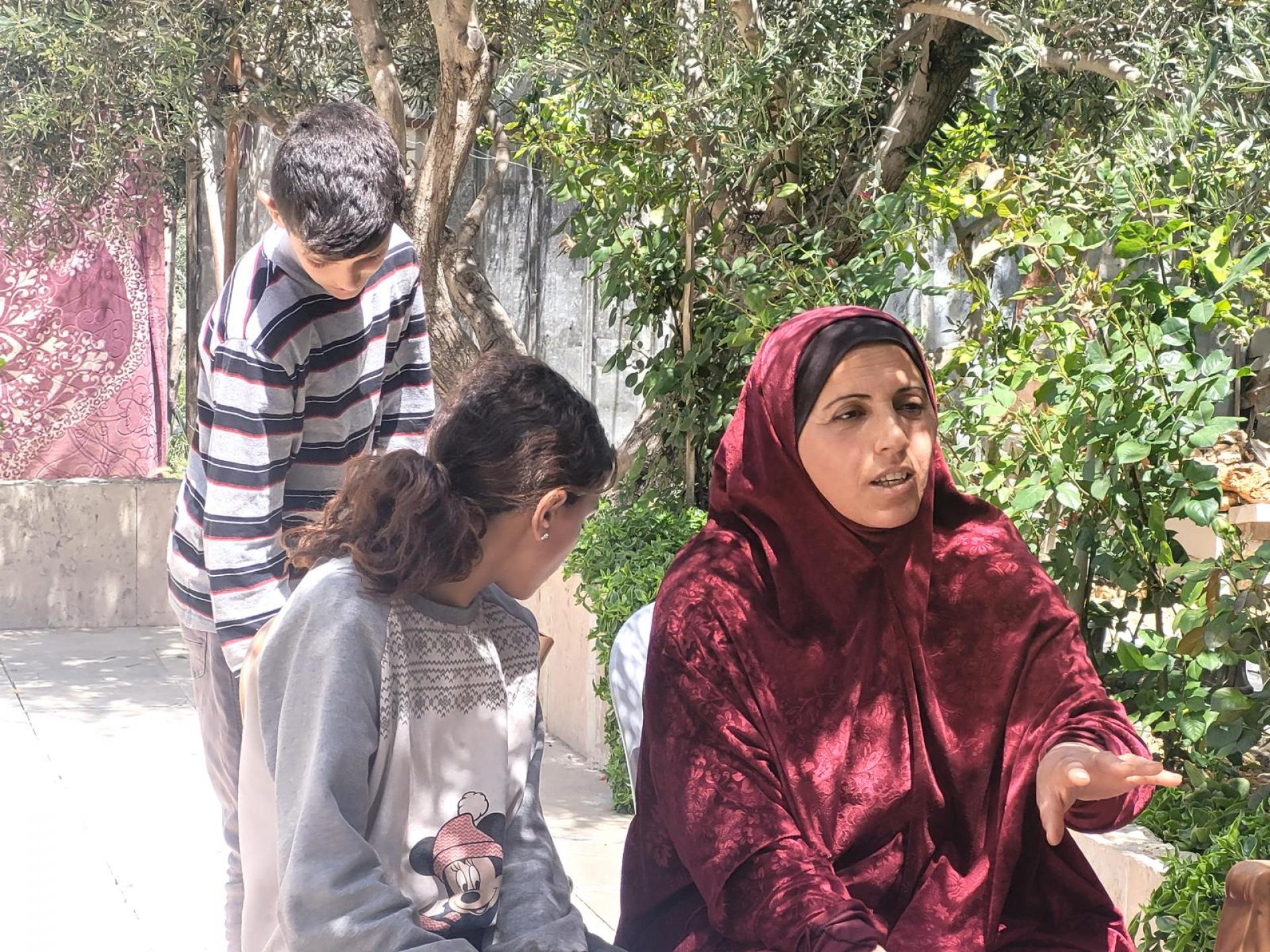Al-Khader: Solidarity visit with the Dadua family
Bethlehem checkpoint (300) - because of the appropriate time to visit the Dadua family, we arrive at the checkpoint only after 10 o'clock, when the pedestrian checkpoint is closed and locked even for the few who are approved to cross. A few soldiers with a laptop and a security guard stop a group of women who want to enter Bethlehem and check them against their details on the computer. When we ask why it is necessary to check those leaving Israel, the soldier with the weapon tell me: for the sake of public order. Stupid answer, but the matter could be related to the new procedure of monitoring the time of stay in Israel and adjusting it to the duration of the Tasrih (permit).
Route 60, entrance to Al Khader, Hussan and Batir - there are no traffic jams today on Route 60. Not even in both directions at the tunnel checkpoint. The West Bank is not a favorite travel destination at the Passover week. Nor are many people moving from the settlements to work in Jerusalem.
At the Al Khader junction (Route 60/Route 375), there is no entry and exit by car to Al Khader, Hussan and Batir. They can be reached through the Hussan checkpoint west of here, but only with a permit. Batir with its historic terraces was declared a cultural site by UNESCO, but remained isolated from the world.
A visit to the Dadua family home, Al Nashash / northern entrance road to Efrat - further south, in Nashash, there is an entrance by car to Al Khader. There is a traffic jam at the exit for all those who come from the north of the Bank and want to continue south. They must travel on the underground road through Beit Sahour and Bethlehem city. How long will these terrible traffic blockades between parts of the West Bank last, no one knows. Hours of traffic jams in order to create roads for Jews only.
We came to visit the Dadua family to express solidarity, because now that Ramadan is over, the demolition of the house that was renovated with the funding of the British AMOS association is expected every day. We wanted to express that sharing and support for Nofuz and her seven children who are under enormous stress day and night. When will the destroyers arrive - today, tomorrow, in a week? And if they arrive early in the morning, without prior warning? Will there be time to evacuate essential items before the demolition?
The yard is blooming, the house is well-kept, the children are cute and smiling, but it is clear to everyone that this is a lost case.
All legal avenues have been exhausted. Now only international pressure can save the day, but who will fight for one house on the outskirts of Efrat when so many houses are being destroyed in Gaza, Jerusalem and the West Bank? In the long conversation, it becomes clear that there is a suspicion of whistle-blowing from a family member with conflicting interests, which caused the appearance and unfolding of the demolition orders. And I have a feeling that this is exactly the way in which the occupation causes Palestinian society to crumble. So many suspicions within the large family, among friends and neighbors. There is no proof, everything is circumstantial, but the conspiracy theories are growing.
To Walaja via Beit Jala - we say goodbye with great sadness, and return to Jerusalem via the exit from Route 60 to Beit Jala, the Gilo settlement and the road going down from Walaja to Jerusalem. The Walaja checkpoint is in the process of being moved to the west, in order to block the free entry of the Palestinian residents of Walaja to the historical spring of al-Haniya and their agricultural lands around it. At the same time, the Civil Administration is promoting a plan to establish a new settlement on the village lands blocked by the separation wall. The removal of the checkpoint has not yet been completed, but in view of the many cars parked near the Springs park (according to our impression, many religious families), it is hard to imagine that many Palestinians from Walaja, including residents of Jerusalem, will come to bathe and spend time here right now.
is promoting a plan to establish a new settlement on the village lands blocked by the separation wall. The removal of the checkpoint has not yet been completed, but in view of the many cars parked near the Springs park (according to our impression, many religious families), it is hard to imagine that many Palestinians from Walaja, including residents of Jerusalem, will come to bathe and spend time here right now.



